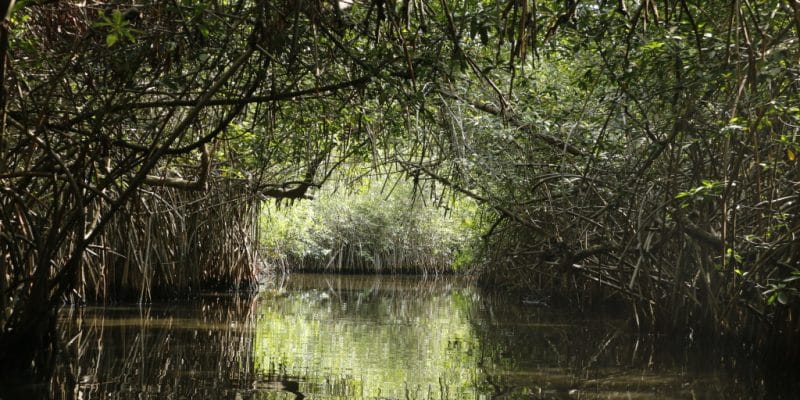Over the next five years, the Food and Agriculture Organization of the United Nations (FAO) will implement the project Strengthening the Resilience of Human and Natural Systems to Climate Change through the Conservation and Sustainable Use of Mangrove Ecosystems in Southern Benin. The initiative in partnership with the Beninese government will contribute to the preservation of biodiversity in urban areas.
In Benin, the Food and Agriculture Organization of the United Nations (FAO) recently signed a contract with the Beninese Ministry of Living Environment and Sustainable Development for the sustainable management of mangrove ecosystems by 2028 in the cities of Grand-Popo, Comè, Ouidah, Bopa, Kpomassé, Abomey-Calavi, Sô-Ava, Aguégués and Sèmè-Kpodji.
These councils, all located in the southern part of Benin, have in common the risk of flooding, which affects the farms of 300,000 people and endangers the potential of fauna and flora. Among the natural sites most exposed to climatic shocks is Lake Ahémé, whose mangrove covers an area of 126 km2 with around 70 species of fish and birds.
This is why the UN agency based in Rome, Italy, is implementing the project “Strengthening the resilience of human and natural systems to climate change through the conservation and sustainable use of mangrove ecosystems in southern Benin. At a total cost of $70 million (42.6 billion CFA francs), the initiative will be co-financed with $62.8 million (38.2 billion CFA francs) from the Global Environment Facility (GEF) and the Least Developed Countries Fund (LDCF).
Securing the urban natural heritage
“Mangroves are the most biomass-producing ecosystems on our planet. Mangroves form the backbone of these ecosystems and are home to a host of species that find natural refuge in their roots. It is a breeding ground for many species and an essential element in carbon fixation,” says the FAO, represented in Benin by Isaias Angue Obama.
Read also-BENIN/TOGO: A sanitation operation will allow the cleaning of the Gbaga channel
At the same time, the government of this West African country is continuing to implement the national investment programme called “Benin Revealed”, launched in 2016. It is within this framework that two marine protected areas have been created in the first half of 2022 in the Donatin district of Cotonou and Bouche du Roy in Grand-Popo. For the Beninese authorities, the aim is to secure the mangrove as well as the fisheries resources threatened by human activities and to promote the development of ecotourism and sustainable fishing.
Benoit-Ivan Wansi







